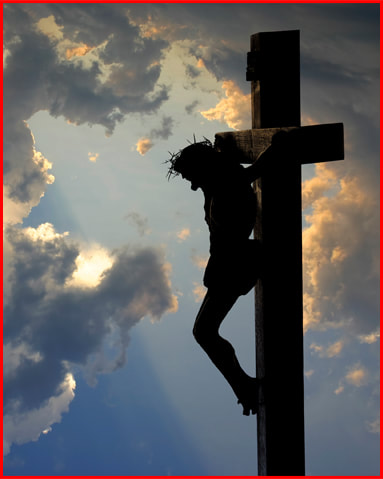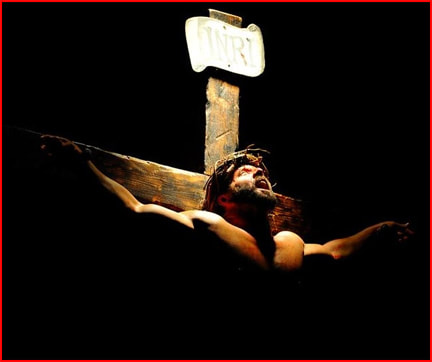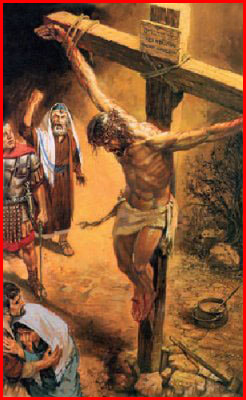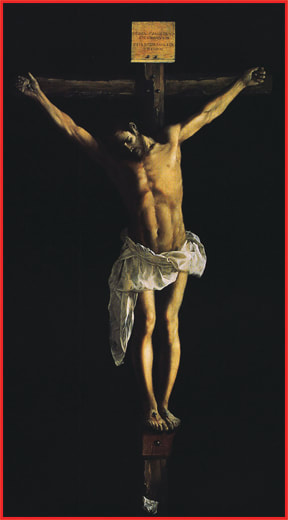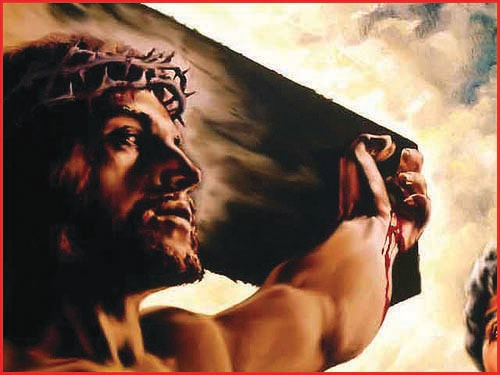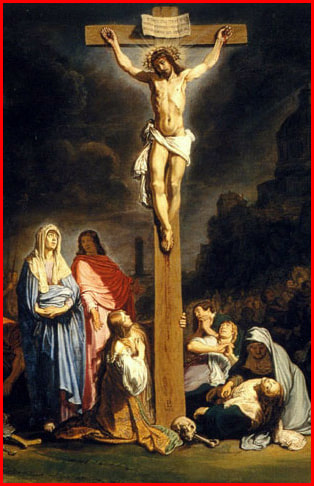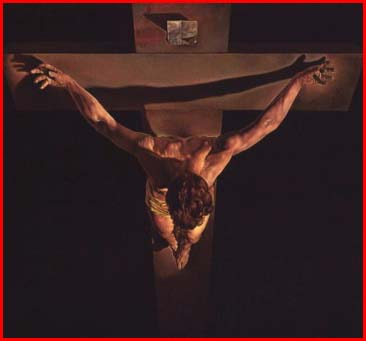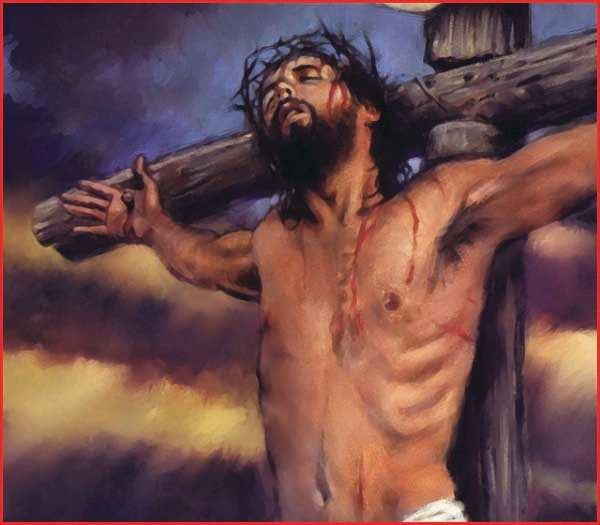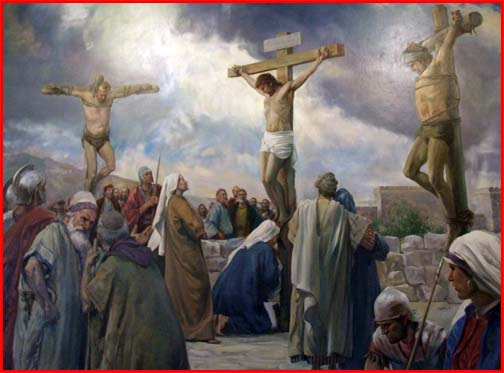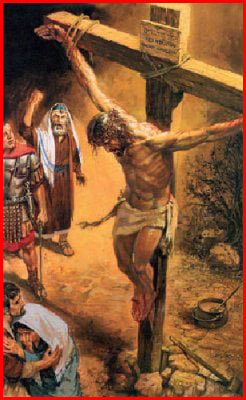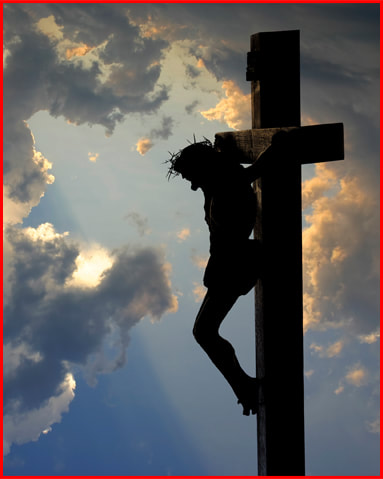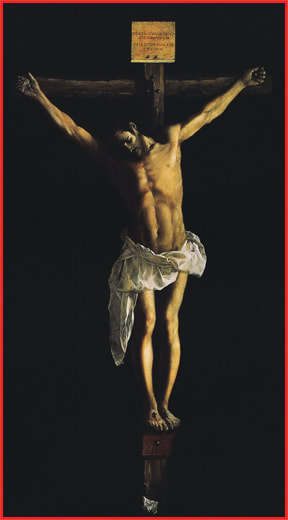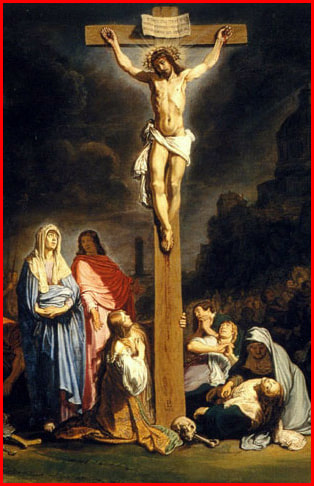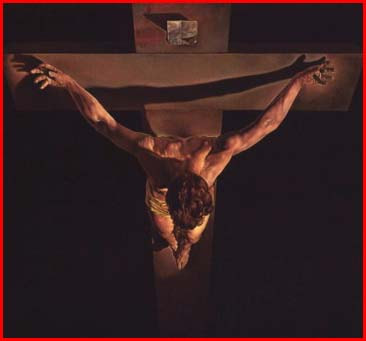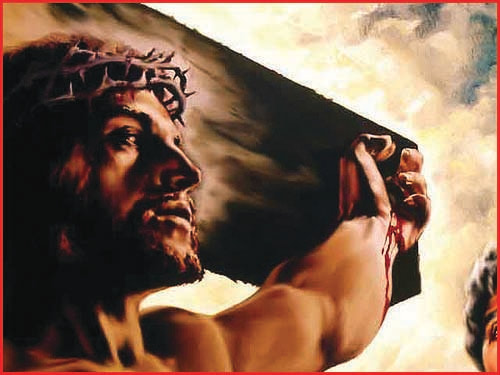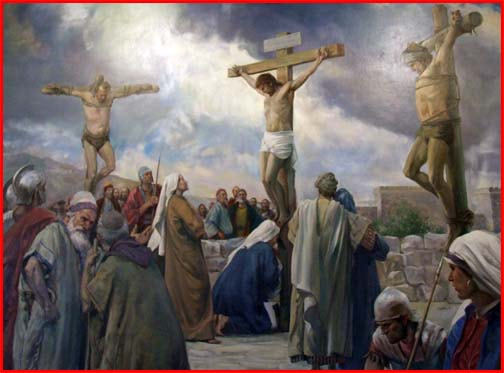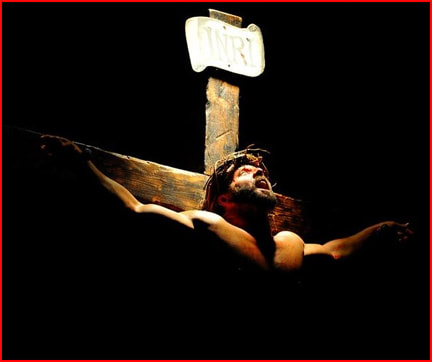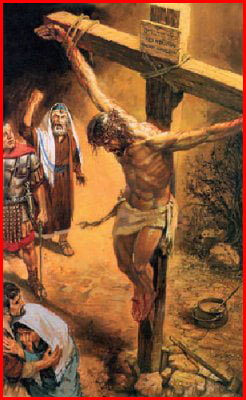| Devotion to Our Lady |
|
- Homepage
-
Daily Thoughts
- 2023 October Daily Thoughts
- Daily Thoughts Lent 2020
- Daily Thoughts for Advent 2019
- Daily Thoughts for October 2019
- Daily Thoughts for September 2019
- Daily Thoughts for August 2019
- Daily Thoughts for July
- Daily Thoughts for June
- Daily Thoughts for Easter 2019
- Daily Thoughts for Lent 2019
- Daily Thoughts for Christmas
- Daily Thoughts Easter 2022
- Sacred Heart
- Holy Ghost
-
Spiritual Life
- Holy Mass Explained
- First Friday Devotions
- First Saturday Devotions
- The Mercy of God
- Vocations
- The Path Everyone Must Walk >
- Gift of Failure
- Halloween or Hell-O-Ween?
- Ignatian Spiritual Exercises >
- Meditation is Soul-Saving
- Spiritual Communion
- Miraculous Medal
- Enrollment in Miraculous Medal
- St. Benedict Medal
- Holy Water
- Advice on Prayer
- Your Daily Mary
-
Prayers
- September Devotions
- Seven Sorrows of Our Lady
-
Novenas
>
- NV-Help of Christians
- NV-Nativity of Our Lady
- NV-Seven Sorrows
- NV- Sorrowful Heart
- NV-Pope St Pius X
- NV-La Salette
- NV-St Michael Archangel
- NV-Immaculate Heart
- NV-Assumption
- NV-Novena for Fathers
- NV-Novena for Your Mother
- NV-St Raphael Archangel
- NV-Souls in Purgatory
- NV-All Saints Day
- NV-Christ the King
- NV-Divine Motherhood
- NV-Guardian Angels
- NV-Rosary
- NV-Mirac Med
- NV- Imm Conc
- NV - Guadalupe
- NV - Nativity of Jesus
- NV-Epiphany
- NV-OL Good Success
- NV-Lourdes
- NV-St Patrick
- NV-St Joseph
- NV-Annunciation
- NV-St Louis de Montfort
- NV-OL Good Counsel
- NV-Last Supper
- NV-Passion
- NV-Pentecost
- NV-Ascension
- NV-Sacred Heart
- NV-Sacred Heart & Perpetual Help
- NV-Corpus Christi
- NV-OL of Perpetual Help
- NV-Queenship BVM
- NV-OL of Mount Carmel
- NV-St Mary Magdalen
- NV- Im Hrt
- August Devotions to IHM
- Immaculate Heart of Mary
- Litany of Dependence
- Prayers to St Mary Magdalen
- Prayers in Times of Sickness Disease & Danger
- Holy Souls in Purgatory
- Meditations on the Litany of Our Lady
- Special Feast Days
- Prayers to Mary (Mon-Sun)
- Litanies to Our Lady >
- Various & Special Needs
- Our Lady of the Rosary
- Our Lady of Mt. Carmel
- Our Lady of Perpetual Help
- Our Lady of Guadalupe
- Other titles of Our Lady
-
Rosary
- Downloads
- Consecration
- Easter Season
-
Holy Week
- Last Seven Words of Jesus >
- Characters of Passion >
- The Last Days of Christ
- Before Palm Sunday
- Palm Sunday
- Monday in Holy Week
- Tuesday in Holy Week
- Wednesday in Holy Week
- Holy Thursday (Last Supper)
- Holy Thursday (Agony & Arrest)
- Night Vigil with Christ
- Good Friday (Pilate & Herod)
- Good Friday (Way of Cross & Crucifixion)
- Saturday in Holy Week
-
Lent
- Ideas for Lent
- Daily Lenten Planner
- Daily Lenten Liturgy
- From Cold to Hot
- Lent with Aquinas
- Lent with Dom Gueranger
- Virtues for Lent
- History of Penance
- How Expensive is Sin?
- Confession of Sins
- Letter to Friends of the Cross
- Sermons for Lent
- Stations of the Cross >
- Lenten Prayers
- 7 Penitential Psalms
- Lenten Psalms SUN
- Lenten Psalms MON
- Lenten Psalms TUE
- Lenten Psalms WED
- Lenten Psalms THU
- Lenten Psalms FRI
- Lenten Psalms SAT
- Lenten Laughs
- Septuagesima
-
Christmas
- Epiphany Explained
- Suggestions for Christmas
- Food For Thought
- Christmas with Aquinas
- Christmas with Dom Gueranger
- Christmas Prayers
- Candles & Candlemas
- Christmas Sermons
- Christmas Prayers SUN
- Christmas Prayers MON
- Christmas Prayers TUE
- Christmas Prayers WED
- Christmas Prayers THU
- Christmas Prayers FRI
- Christmas Prayers SAT
- Twelve Days of Christmas >
-
Advent Journey
- Purgatory
- Christ the King
- Legion of Mary
- Scapular
-
Saints
-
Martyrs for the Faith
>
- Your Daily Martyr >
- All 365 Days of Martyrs
- Cristeros
- St Valentine & Valentine's Day
- Martyrs--Thomas Becket
- Martyrs--John the Apostle
- Holy Machabees
- Age of Martyrdom
- Carmelites of Compiegne
- Martyrs--Peter & Paul
- Martyrs--John the Baptist
- Martyrs--Andrew
- Martyrs--James the Great
- Martyrs--North American
- Martyrs--Seven Holy Sleepers
- Martyrs--Afra
- School of Martyrdom
- Martyrs--Christina
- Desert Saints >
- Saints for Sinners >
- Saints of Mary >
- History of All Saints Day
-
Martyrs for the Faith
>
- Precious Blood
- Synod 2023
-
Catechism
- Catechism Lesson 1
- Catechism Lesson 2
- Catechism Lesson 3
- Catechism Lesson 4
- Catechism Lesson 5
- Catechism Lesson 6
- Catechism Lesson 7
- Catechism Lesson 8
- Catechism Lesson 9
- Catechism Lesson 10
- Catechism Lesson 11
- Catechism Lesson 12
- Catechism Lesson 13
- Catechism Lesson 14
- Catechism Lesson 15
- Catechism Lesson 16
- Catechism Lesson 17
- Catechism Lesson 18
- Catechism Lesson 19
- Catechism Lesson 20
- Catechism Lesson 21
- Catechism Lesson 22
- Bible Study
-
Calendar
- Miracles
- Apparitions
- Shrines
- Prophecies
- Angels Homepage
- Hell
-
Church Crisis
- Conspiracy Theories
- Amazon Synod 2019 >
- Liberalism & Modernism
- Modernism--Encyclical Pascendi
- Modernism & Children
- Modernism--Documents
- The Francis Pages
- Church Enemies on Francis
- Francis Quotes
- Amoris Laetitia Critique
- Danger of Ignorance (Pius X)
- Restore all In Christ (Pius X)
- Catholic Action (Pius X)
- Another TITANIC Disaster?
- The "Errors of Russia"
- CRISIS PRAYERS
- Election Novena 2024
- The Anger Room
- War Zone
- Life of Mary
- Spiritual Gym
- Stupidity
- Coronavirus and Catholicism
- History & Facts
- Books
- Catholic Family
- Children
- Daily Quiz
-
Novena Church & Pope
- Day 01 Church-Pope Novena
- Day 02 Church-Pope Novena
- Day 03 Church-Pope Novena
- Day 04 Church-Pope Novena
- Day 05 Church-Pope Novena
- Day 06 Church-Pope Novena
- Day 07 Church-Pope Novena
- Day 08 Church-Pope Novena
- Day 09 Church-Pope Novena
- Day 10 Church-Pope Novena
- Day 11 Church-Pope Novena
- Day 12 Church-Pope Novena
- Day 13 Church-Pope Novena
- Day 14 Church-Pope Novena
- Day 15 Church-Pope Novena
- Day 16 Church-Pope Novena
- Day 17 Church-Pope Novena
- Day 18 Church-Pope Novena
- Day 19 Church-Pope Novena
- Day 20 Church-Pope Novena
- Day 21 Church-Pope Novena
- Day 22 Church-Pope Novena
- Day 23 Church-Pope Novena
- Day 24 Church-Pope Novena
- Day 25 Church-Pope Novena
- Day 26 Church-Pope Novena
- Day 27 Church-Pope Novena
- Day 28 Church-Pope Novena
- Day 29 Church-Pope Novena
- Day 30 Church-Pope Novena
- Day 31 Church-Pope Novena
- Day 32 Church-Pope Novena
- Day 33 Church-Pope Novena
- Day 34 Church-Pope Novena
- Day 35 Church-Pope Novena
- Day 36 Church-Pope Novena
- Day 37 Church-Pope Novena
- Day 38 Church-Pope Novena
- Day 39 Church-Pope Novena
- Day 40 Church-Pope Novena
- Day 41 Church-Pope Novena
- Day 42 Church-Pope Novena
- Day 43 Church-Pope Novena
- Day 44 Church-Pope Novena
- Day 45 Church-Pope Novena
- Day 46 Church-Pope Novena
- Day 47 Church-Pope Novena
- Day 48 Church-Pope Novena
- Day 49 Church-Pope Novena
- Day 50 Church-Pope Novena
- Day 51 Church-Pope Novena
- Day 52 Church-Pope Novena
- Day 53 Church-Pope Novena
- Day 54 Church-Pope Novena
- Penance Novena
- Daily WeAtheR Forecast
The Greatest and Most Important Week in the Church's Liturgical Year
CLICK ON ANY HOLY WEEK LINK BELOW
Also lots of LENTEN & HOLY WEEK DOWNLOADS on the downloads page (click here)
LITURGICAL PRAYERS FOR EACH DAY OF THE WEEK DURING LENT
| Sundays of Lent | Mondays of Lent | Tuesdays of Lent | Wednesdays of Lent | Thursdays of Lent | Fridays of Lent | Saturdays of Lent |
HOLY WEEK PAGES
| Daily Thoughts | Holy Week Main Page | Before Palm Sunday | Palm Sunday | Last Days of Christ |
| Holy Thursday Last Supper Novena | Good Friday Passion Novena |
| Monday of Holy Week | Tuesday of Holy Week | Wednesday of Holy Week | Holy Thursday (Last Supper) | Holy Thursday (Agony & Arrest) |
| Night Vigil With Christ | Good Friday (Pilate & Herod) | Good Friday (Way of Cross & Crucifixion) | Holy Saturday |
THE CHIEF CHARACTERS OF THE PASSION
| Characters of the Passion Mainpage | The Sanhedrin | Pharisees | Scribes | Saducees | Jewish Crowd | Roman Rulers |
| Judas | Annas & Caiphas | Pontius Pilate | Herod | Barabbas | Dismas the Good Thief | St. Peter | St. John | Mary Magdalen |
THE FOURTEEN STATIONS OF THE CROSS
| Introduction to the Stations of the Cross | Short Version of the Stations of the Cross (all 14 on one page) | 1st Station | 2nd Station | 3rd Station |
| 4th Station | 5th Station | 6th Station | 7th Station | 8th Station | 9th Station | 10th Station | 11th Station | 12th Station | 13th Station | 14th Station |
THE LAST SEVEN WORDS OF JESUS FROM THE CROSS
| Seven Last Words on the Cross (Introduction) | The 1st Word on the Cross | The 2nd Word on the Cross | The 3rd Word on the Cross |
| The 4th Word on the Cross | The 5th Word on the Cross | The 6th Word on the Cross | The 7th Word on the Cross |
PRAYERS AND DEVOTIONS TO THE SEVEN SORROWS OF OUR LADY
| Seven Sorrows Meditations | Short Prayers & Short Seven Sorrows Rosary | Longer Seven Sorrows Rosary |
| 1st Sorrow of Our Lady | 2nd Sorrow of Our Lady | 3rd Sorrow of Our Lady | 4th Sorrow of Our Lady |
| 5th Sorrow of Our Lady | 6th Sorrow of Our Lady | 7th Sorrow of Our Lady |
| Novena #1 to the Sorrowful Heart of Mary | Novena #2 to the Sorrowful Heart of Mary |
LENTEN PAGES
| ASH WEDNESDAY COUNTDOWN | LENT (MAIN PAGE) | DAILY THOUGHTS | DAILY LENTEN LITURGY | DAILY LENTEN PLANNER |
| LENTEN PRAYERS | THE 7 PENITENTIAL PSALMS | IDEAS FOR PENANCE | LENT WITH AQUINAS | LENT WITH DOM GUERANGER |
| HISTORY OF PENANCE | PENANCES OF THE SAINTS | HOW EXPENSIVE IS SIN? | CONFESSION OF SINS | ARE FEW SOULS SAVED? |
| VIRTUES FOR LENT | FROM COLD TO HOT | LENTEN LAUGHS | SERMONS FOR LENT | LETTER TO FRIENDS OF THE CROSS |
| STATIONS OF THE CROSS (INDIVIDUALLY) | ALL 14 STATIONS OF THE CROSS |
| THE LAST DAYS OF CHRIST | SPECIAL HOLY WEEK PAGES |
CLICK ON ANY HOLY WEEK LINK BELOW
Also lots of LENTEN & HOLY WEEK DOWNLOADS on the downloads page (click here)
LITURGICAL PRAYERS FOR EACH DAY OF THE WEEK DURING LENT
| Sundays of Lent | Mondays of Lent | Tuesdays of Lent | Wednesdays of Lent | Thursdays of Lent | Fridays of Lent | Saturdays of Lent |
HOLY WEEK PAGES
| Daily Thoughts | Holy Week Main Page | Before Palm Sunday | Palm Sunday | Last Days of Christ |
| Holy Thursday Last Supper Novena | Good Friday Passion Novena |
| Monday of Holy Week | Tuesday of Holy Week | Wednesday of Holy Week | Holy Thursday (Last Supper) | Holy Thursday (Agony & Arrest) |
| Night Vigil With Christ | Good Friday (Pilate & Herod) | Good Friday (Way of Cross & Crucifixion) | Holy Saturday |
THE CHIEF CHARACTERS OF THE PASSION
| Characters of the Passion Mainpage | The Sanhedrin | Pharisees | Scribes | Saducees | Jewish Crowd | Roman Rulers |
| Judas | Annas & Caiphas | Pontius Pilate | Herod | Barabbas | Dismas the Good Thief | St. Peter | St. John | Mary Magdalen |
THE FOURTEEN STATIONS OF THE CROSS
| Introduction to the Stations of the Cross | Short Version of the Stations of the Cross (all 14 on one page) | 1st Station | 2nd Station | 3rd Station |
| 4th Station | 5th Station | 6th Station | 7th Station | 8th Station | 9th Station | 10th Station | 11th Station | 12th Station | 13th Station | 14th Station |
THE LAST SEVEN WORDS OF JESUS FROM THE CROSS
| Seven Last Words on the Cross (Introduction) | The 1st Word on the Cross | The 2nd Word on the Cross | The 3rd Word on the Cross |
| The 4th Word on the Cross | The 5th Word on the Cross | The 6th Word on the Cross | The 7th Word on the Cross |
PRAYERS AND DEVOTIONS TO THE SEVEN SORROWS OF OUR LADY
| Seven Sorrows Meditations | Short Prayers & Short Seven Sorrows Rosary | Longer Seven Sorrows Rosary |
| 1st Sorrow of Our Lady | 2nd Sorrow of Our Lady | 3rd Sorrow of Our Lady | 4th Sorrow of Our Lady |
| 5th Sorrow of Our Lady | 6th Sorrow of Our Lady | 7th Sorrow of Our Lady |
| Novena #1 to the Sorrowful Heart of Mary | Novena #2 to the Sorrowful Heart of Mary |
LENTEN PAGES
| ASH WEDNESDAY COUNTDOWN | LENT (MAIN PAGE) | DAILY THOUGHTS | DAILY LENTEN LITURGY | DAILY LENTEN PLANNER |
| LENTEN PRAYERS | THE 7 PENITENTIAL PSALMS | IDEAS FOR PENANCE | LENT WITH AQUINAS | LENT WITH DOM GUERANGER |
| HISTORY OF PENANCE | PENANCES OF THE SAINTS | HOW EXPENSIVE IS SIN? | CONFESSION OF SINS | ARE FEW SOULS SAVED? |
| VIRTUES FOR LENT | FROM COLD TO HOT | LENTEN LAUGHS | SERMONS FOR LENT | LETTER TO FRIENDS OF THE CROSS |
| STATIONS OF THE CROSS (INDIVIDUALLY) | ALL 14 STATIONS OF THE CROSS |
| THE LAST DAYS OF CHRIST | SPECIAL HOLY WEEK PAGES |
THE SEVENTH WORD
Father! Into Thy hands I commend My spirit!
Father! Into Thy hands I commend My spirit!
|
BLESSED ANNE CATHERINE EMMERICH
The Dolorous Passion of Our Lord Jesus Christ The hour of our Lord was at last come; His death-struggle had commenced; a cold sweat overspread every limb. Jesus then, raising His head, cried out in a loud voice, “Father, into Thy hands I commend My spirit!” These words, which He uttered in a clear and thrilling tone, resounded through Heaven and earth; and a moment after, He bowed down His head and gave up the ghost. I saw His soul, under the appearance of a bright meteor, penetrate the earth at the foot of the Cross. John and the holy women fell prostrate on the ground. The centurion Abenadar had kept his eyes steadfastly fixed on the disfigured countenance of Our Lord, and was perfectly overwhelmed by all that had taken place. When our Lord pronounced His last words, before expiring, in a loud tone, the earth trembled, and the rock of Calvary burst asunder, forming a deep chasm between the Cross of our Lord and that of Gesmas. The voice of God—that solemn and terrible voice—had re-echoed through the whole universe; it had broken the solemn silence which then pervaded all nature. All was accomplished. The soul of our Lord had left His body: His last cry had filled every breast with terror. The convulsed earth had paid homage to its Creator: the sword of grief had pierced the hearts of those who loved Him. This moment was the moment of grace for Abenadar; his horse trembled under him; his heart was touched; it was rent like the hard rock; he threw his lance to a distance, struck his breast, and cried out: “Blessed be the Most High God, the God of Abraham, of Isaac, and of Jacob; indeed this Man was the Son of God!” His words convinced many among the soldiers, who followed his example, and were likewise converted. Abenadar became from this moment a new man; he adored the true God, and would no longer serve his enemies. He gave both his horse and his lance to a subaltern of the name of Longinus, who, having addressed a few words to the soldiers, mounted his horse, and took the command upon himself. Abenadar then left Calvary, and went through the Valley of Gihon to the caves in the Valley of Hinnom, where the disciples were hidden, announced the death of our Lord to them, and then went to the town, in order to see Pilate. No sooner had Abenadar rendered public testimony of his belief in the divinity of Jesus, than a large number of soldiers followed his example, as did also some of the bystanders, and even a few Pharisees. Many struck their breasts, wept, and returned home, while others rent their garments, and cast dust on their heads, and all were filled with horror and fear. John arose; and some of the holy women who were at a short distance came up to the Blessed Virgin, and led her away from the foot of the Cross. When Jesus, the Lord of life and death, gave up His soul into the hands of His Father, and allowed death to take possession of His body, this sacred body trembled and turned lividly white; the countless wounds which were covered with congealed blood appeared like dark marks; His cheeks became more sunken, His nose more pointed, and His eyes, which were obscured with blood, remained but half open. He raised His weary head, which was still crowned with thorns, for a moment, and then dropped it again in agony of pain; while His parched and torn lips, only partially closed, showed His bloody and swollen tongue. At the moment of death His hands, which were at one time contracted round the nails, opened and returned to their natural size, as did also His arms; His body became stiff, and the whole weight was thrown upon the feet, His knees bent, and His feet twisted a little on one side. What words can, alas, express the deep grief of the Blessed Virgin? Her eyes closed, a death-like tint overspread her countenance; unable to stand, she fell to the ground, but was soon lifted up, and supported by John, Magdalen, and the others. She looked once more upon her beloved Son—that Son whom she had conceived by the Holy Ghost, the flesh of her flesh, the bone of her bone, the heart of her heart—hanging on a cross between two thieves; crucified, dishonoured, condemned by those whom He came on earth to save; and well might she at this moment be termed “the Queen of Martyrs.” The sun still looked dim and suffused with mist; and during the time of the earthquake the air was close and oppressive, but by degrees it became more clear and fresh. It was about three o'clock when Jesus expired. VENERABLE MARY OF AGREDA The Mystical City of God At the pronouncing of the seventh word: “Father, into Thy hands I commend My Spirit!” (Luke 23:46), the mighty Queen and Mother concurred with the will of her Son Jesus and united with His command that Lucifer and all demons depart to the infernal depths. In virtue of these decrees of the supreme King and of the Queen, the evil spirits were routed from Calvary and precipitated to deepest Hell more violently and suddenly than a flash of light through the riven clouds. Christ our Savior, as the triumphant Conqueror having vanquished the great enemy, now yielded up His spirit to the Father and permitted death to approach by inclining His head (John 19:30). By this permission He also vanquished death, which had been equally deceived in Him with the demons. For death could not attack men, or had any jurisdiction of them, except through the first sin, of which it was a punishment. On this account the Apostle says that the weapon or the sting of death is sin, which opens up the wounds by which death enters into the world of humanity (Romans 5,:12); and, as our Savior paid the debt of sin, which He could not commit, therefore, when death took away His life without the shadow of justice, it lost the power which it had over the other sons of Adam (1 Corinthians 15:55). Thenceforward, neither death nor the devil could attack men, unless they, failing to avail themselves of the victory of Christ, should again subject themselves of their own free will. If our first Father, Adam, had not sinned and we ourselves in him, we would not suffer the punishment of death, but merely pass over to the happiness of the eternal fatherland. But sin has made us its subjects and slaves of the devil. He avails himself of death to deprive us first of the grace, the blessings and the friendship of God. Thereby he also prevents us from reaching eternal life and we remain in the slavery of sin and the devil, subject to his tyrannous power (1 John 3:8). Our Savior Christ despoiled the demon of all these advantages and, in dying without sin and satisfying for our own, merited that our death should be a death of the body only, and not of the soul; that it should have power to take away our temporal life, but not our eternal; the natural, not the spiritual; and that it should thenceforward be merely the portal to the eternal happiness, if we ourselves did not renounce that blessing. Thus the Lord satisfied for the chastisements due to the first sin, at the same time furnishing us a means of offering a compensation in our own name by accepting our natural and bodily death for the love of God. Christ absorbed death (1 Corinthians 15:51) and offered His own as a bait for deceiving death (Osee 13:14). By His Death He put an end of its power, overcame it, and was the Death of death itself. MEDITATION Father, Into Your Hands I Commend My Spirit When Adam had been driven from the Garden of Paradise, and the penalty of labor imposed upon him, he went out in quest of the bread he was to earn by the sweat of his brow. In the course of that search, he stumbled upon the limp form of his son Abel, picked him up, carried him upon his shoulders, and laid him on the lap of Eve. They spoke to him, but Abel did not answer. He had never been so silent before. They lifted his hand, but it fell back limp; it had never acted that way before. They looked into his eyes—cold, glassy, mysteriously elusive; they had never been so unresponsive before. They wondered, and as they wondered, their wonder grew. Then they remembered: "From that tree you shall not eat; the moment you eat from it you are surely doomed to die." It was the first death in the world. Centuries whirled around into space, and the new Abel, Christ, is now put to death by His jealous brethren of the race of Cain. The life that came out from the boundless deep now prepares to return home. His sixth word was a cry of retrospect: "All is now fulfilled. I have finished the work My Father gave Me." His seventh and last word is one of prospect: "Into Your hands I commend My Spirit." The sixth word was meant for the world; the seventh word was meant for God His Father. The sixth word was a farewell to earth; the seventh His entrance into Heaven. Just as those great planets, only after a long time, complete their orbit and return again to their starting-point, as if to salute Him who sent them on their way, so He who had come from Heaven had finished His work and completed His orbit, now goes back to the Father to salute Him who sent Him out on the great work of the world's redemption: "Father, into Your hands I commend My Spirit." Prodigal Return The Prodigal Son is returning to His Father's house, for is not Christ the Prodigal? Thirty-three years before He had left His Father's eternal mansion and went off into the foreign country of this world. Then He began spending Himself and being spent; dispensing with an infinite prodigality the divine riches of power and wisdom and bestowing with a heavenly generosity the divine gifts of pardon and mercy. In this last hour His whole substance is wasted among sinners, for He is giving the last drop of His Precious Blood for the redemption of the world. There is nothing to feed upon except the husks of human sneers and the vinegar and gall of bitter human ingratitude. He now prepares to take the road back to His Father's house, and when yet some distance away He sees the face of His Heavenly Father. He breaks out into the last and perfect prayer from the pulpit of the Cross: "Father, into Your hands I commend My Spirit." Birth and Death All the while Mary is standing at the foot of the Cross. In a short time the new Abel, slain by His brethren, will be taken down from the gibbet of salvation and laid in the lap of the new Eve. It will be the death of Death! But when the tragic moment comes it may seem to the tear-dimmed eyes of Mary that Bethlehem has come back. The thorn-crowned head which had nowhere to lay itself in death, except on the pillow of the Cross, may, through Mary's clouded vision, seem the head which she drew to her breast at Bethlehem. Those eyes at whose fading even the sun and moon were darkened were to her the eyes that glanced up from a crib of straw. The helpless feet riveted with nails once more seem to her the baby feet at which were cast gold, frankincense, and myrrh. The lips now parched and crimsoned with blood seem the ruddy lips that once at Bethlehem nourished themselves on the Eucharist of her body. The hands that can hold nothing but a wound, seem once more the baby hands that were not quite long enough to touch the huge heads of the cattle. The embrace at the foot of the Cross seems the embrace at the side of the crib. In that sad hour of death which always makes one think of birth, Mary may feel that Bethlehem has come back again. In Bethlehem, He was born to die; on Calvary He dies to be born in Heaven. The same is true for us! We are born to die, and we die to be born in Heaven. Our death is our birthday! Leaving Things to God It was about 3:00 in the afternoon when Jesus said His last word and died. It had been a long time since the night before, when He had left the Upper Room to go to the Garden of Gethsemani. There had been about eighteen hours of uninterrupted stress and strain, agony of mind and pain of body. He had had no sleep the night before. The time after being apprehended in the Garden had been spent in going from court to court and being put on trial. He had gone from Annas to Caiphas, to Pilate, to Herod, and back to Pilate. In between these trips, the soldiers had amused themselves by mocking Him, putting Him on a stump and placing a reed in His hand, as though He were king, then striking Him with the reed, spitting on Him, bending the knee before Him. Later in the morning, after He had been scourged, they had actually interwoven a crown of thorns and placed it on His head, again in derision of His claimed kingship. Then there had been the frenzied shouting, the overflowing of passion and hatred. It would have required nerves of steel not to be affected by all this clamor, especially when directed at oneself. Beyond all this, moreover, was the heavy sorrow of knowing that these people, His own countrymen, had had every chance of knowing better. They had seen miracles and had heard the most convincing preaching. They had blinded themselves deliberately, even after the pagan judge, Pilate, had said that the man being tried was innocent. Finally, Jesus had taken on His shoulder theheavy cross and had walked up the hill to Calvary, just outside the city wall. There He had been stripped of His garments and nailed with three large nails to the Cross. It does not take great imagination to realize the terrible pain of this nailing and the increased pain when He was raised on the Cross, attached by nails. There was no anesthetic, no pain-dulling "shot." He bore the raw pain without benefit even of the usual drink of wine and myrrh. Crucifixion was considered even by the ancients, who were much rougher people than most of us are, as the most cruel form of death. The loss of blood and the suffering would cause a fever, and this in turn would make the whole body ache and induce a great thirst. Worst of all was the constant grinding of the nails against the median nerves of His hands. The pain in Jesus' feet would also have been severe with the iron nail pressing against the plantar nerves like 'red hot pokers,' similar to that suffered by the median nerve injuries during nailing of the hands. This, then, was the suffering which Our Lord endured for three hours. And all this came at the end of a long night without sleep, a night of being dragged back and forth, falsely accused, mocked, browbeaten. It came after the scourging and crowning with thorns. Interior Suffering Besides this pain of the body, there was the deep anguish of Our Lord in thinking about the loss of many souls who would not profit from His sacrifice. He saw those gathered beneath the Cross who continued to ridicule Him to the end. He saw the people of all centuries who, in pride and disobedience and sensuality, would deliberately reject Him, His Church, His Law. Then there had been that most mysterious desolation of spirit leading Him to cry out, asking why God had forsaken Him. Truly He took upon Himself the full weight of sin, even to feeling cut off from God. As St. Paul says: "Wherefore it behoved Him in all things to be made like unto His brethren, that He might become a merciful and faithful high priest before God, that He might be a propitiation for the sins of the people." (Hebrews 2:17). He Died Freely The last words of Jesus were cried out with a loud voice. He had endured enough to cause death, but He was still the Master of life and death. Had He chosen, He could have gone on living. His loud cry and final words show that He died by His own choice. His voice was not the weak, hardly audible voice of one who has not an ounce of strength left. His words accepting death and His immediate bowing of His head thereafter show that He died because He willed to die. At the moment of Christ's death there was a great earthquake. The rocks on Calvary were cleft, a rent appearing down the side of the hill. In Jerusalem, the great veil of the Temple that separated the Holy of Holies from the main part of the Temple was torn in two down the middle, signifying the end of the Old Law. The Roman centurion in charge of the soldiers, "seeing that crying out in this manner He had given up the ghost, said: Indeed this man was the son of God." (Mark 15:39). Many of the Jews left in fear and went back into the city, striking their breasts as a sign of submission to God. Last Words Show Union with the Father The last words of Jesus were words of trust in Clod, of resignation, love and confidence. "Father, into Thy hands I commend My spirit." A little earlier He had cried out: "My God, My God, why hast Thou forsaken me?" Those words show us the degree of bitterness and the depth of abandonment He experienced. But it would have been unthinkable that these words would be His last. No, His final words must show union and harmony between the Son and the Father. Therefore, Jesus does not use the more distant form of address, "My God," but speaks familiarly, "Father." Death is the final, lowest humiliation that the Saviour can undergo. Even at the end He could still have descended from the Cross, healed, and confounded all His enemies. He could have approached the point of death—yet without dying. But that was not the divine plan for Redemption. Life is the sweetest and best of all the gifts of God. No one ever realized this more than Our Lord. But He now gladly gave up this life, accepting the final humiliation of death in love and submission to the will of His Father. That is the meaning of the words: "Into Thy hands I commend My spirit." They are words of complete resignation to the will of God. Life comes from God; life must be used for Him; life must go back to Him. When We Should Use Christ's Words There are three times especially when we should ourselves use the words: "Into Thy hands I commend My spirit." 1. Upon Going to Sleep First, we should use them each evening as part of our night prayers. When night comes and another day is over, so is another part of our life on earth. Each day is a miniature life in itself. Each time a person lies down to sleep, he gives up conscious control of life. Sleep is an imitation of death, so that we sometimes even speak of death as a long sleep. Here, then, is a good time to remember that all life has come from God, that life must be lived and used according to His Will, that sooner or later our life must go back to God. If we use the words: "Into Thy hands I commend My spirit" in the right way, we are saying all these things to Almighty God. And if it should happen that we never wake from our sleep, then our last words, or among our very last words, will have been the same as the words that Christ used on the Cross. We could hardly find more fitting words to be our last. 2. After Holy Communion The second time we should use the words: "Into Thy hands I commend My spirit" is after receiving Holy Communion. At this time we address these words to Our Lord present within us. They will then have the meaning of perfect resignation to the will of God in directing our life on earth. They will at this time also have a further special meaning, the giving of self to be remade in the image of Christ. We are giving over the direction and the formation of our soul, "our spirit," to Christ Himself. The ultimate reason for receiving Holy Communion is to become more and more like Christ, to have Him formed in us. (Galatians 4:19). This formation goes on essentially because of the growth in Sanctifying Grace, that Godlike quality that makes us adopted sons of God. Likewise, our mind, our way of thinking, of looking at things, ought to become more and more like that of Christ. As St. Paul wrote to the Philippians: "For let this mind be in you, which was also in Christ Jesus." (Philippians 2:5). Our heart, too, ought to become more and more like that of our Savior. We ought to love the same things He loved, will what He willed, be sorrowful over those things that made Him sorrowful. Therefore, when we say after Holy Communion: "Into Thy hands I commend My spirit," we mean to give over our soul to Christ, asking Him to mold it more and more in His own image. We give our soul to Him, knowing that He knows best what to do for it. Sometimes people are too much interested in trying to acquire this or that good quality, begging Our Lord to help them not to be so inclined to anger or to impatience. It would be much better to stop worrying about oneself and simply to give one's soul over to Our Lord, leaving its direction to Him. 3. At the Hour of Death The third time we should use the words: "Into Thy hands I commend My spirit" is at the final hour of life. Then we have the opportunity to offer our life to God, to accept death according to His will. It would be hard to find better words than the final words of Our Lord to express the willing acceptance of death, the willing offering of life to God. Sacred writers consider this offering of one's own life so pleasing to God that it may be compared in merit with martyrdom. Perhaps it may seem like a small thing to offer one's life to God, to accept death willingly, but it is not. Cynics may say it is small, since a person cannot do anything about it anyway. But to offer one's life, even though death is inevitable, is no small thing, for it is to offer back to God the most precious natural gift He has given us. To offer a million dollars for building a church or school would be a sizable gift. A dying person's life is worth more than a million dollars. He would gladly spend this if his life were spared. The value placed upon life cannot be measured in terms of money. Thus, in offering his life to God, the dying person offers his most precious natural gift. It Is Unjust to Deceive a Dying Person Needless to say, people who are dying should have the opportunity of freely offering the priceless gift of their life. They should not be allowed to go blindly into eternity by not being told they are dying. To try to deceive a dying person, even a child who has the use of reason, is cruelty. It is injustice. There are a number of reasons for saying this. It may be that only the knowledge of approaching death will lead a person to true contrition. Even one who seems to be close to God may have been keeping something on his conscience that only the thought of death will lead him to confess. But aside from this, a person should be given the opportunity to die as Christ did, with full acceptance of the will of God. In all things we are to be imitators of Christ; therefore, we should be imitators of Him in this too. A person should not be denied the opportunity of making this final offering of life, which is so pleasing to God. Yet, sad to say, there exists in many people a false sort of charity and a foolish soft-heartedness that tries to "kid" a sick person along, even through the portals of eternity. We should, of course, be optimistic and stir up the hope of living as long as there is hope. But when the danger is grave and the balance swings to the side of approaching death, then we should let the sick person know. He should not be permitted to back into eternity, but should go forward, and with his eyes open. Well-meaning relatives sometimes try to keep all knowledge of a grave sickness from the dying person. They may even be unwilling to ask the priest to administer the "Last Rites" (Confession, Last Anointing, Communion), fearing that these may upset the sick person. But is this not misdirected affection? Is it not sentimentality instead of mercy? Certainly death is a hard fact; to be in the proximate danger of death is not a pleasant fact. But not to hear about it is not going to prevent it. To know about it in advance may be the means of a great grace, giving the dying person the opportunity to repent or the opportunity to offer his life to God. When a person is in an accident or overcome suddenly by some sickness, the tendency among medical people is to be too hasty with the sedative needle. The doctor or hospital attendant gives a massive sedative to quiet the patient. There is a place for sedatives, but they should not be given so soon that the patient does not at least have the chance to make an act of contrition. He may not think of this himself. If you are present, you can offer to recite the Act of Contrition, asking him to pray along silently. You do not have to shock the person. Just tell him you are going to say the Act of Contrition with him "for safety’s sake," or something similar. Sooner or later each person comes to his own Good Friday. It may be that for us the major pains of life will be distributed over the years, and that our last hours will not be full of suffering. Or, it may be that our last hours will be very painful. We may ask God to make it one way or the other, if we wish; it is not wrong to express our preference to Him. Yet the best attitude is to leave the choice to God: "Thy Will be done." Study the Cross We will be better prepared for death the more we contemplate and appreciate the Cross of Christ and all that it means. No schooling in college or university can explain life better; no amount of reading can make us better, more real persons than can the study of the Cross. The ultimate explanation of all the mysteries of this life is bound up in the suffering and death of Jesus Christ, who is both God and man. During our life here on earth, we should study the Cross. Then, when we come to our final hour, we may have the grace to die as did Our Savior on His Cross, with full resignation, confidence and love, saying to our Heavenly Father: "Into Thy hands I commend My spirit." PRAYER No, Mary! Bethlehem has not come back. This is not the crib, but the Cross; not birth, but death; not the day of companionship with Shepherds and Kings, but the hour of a common death with thieves; not Bethlehem, but Calvary. Bethlehem is Jesus, as you, His sinless mother, gave Him to the world; Calvary is Jesus, as the sinful world gave Him back to you. Something intervened between your giving at the manger and your receiving at the Cross, and that which intervened is my sins. Mary, this is not your hour; it is my hour—my hour of wickedness and sin. If I had not sinned, death would not now hover on its black wings about His crimsoned body; if I had not been proud, the atoning crown of thorns would never have been woven; if I had been less rebellious in treading the broad way which leads to destruction, His feet would never have been pierced with nails; if I had been more responsive to His shepherding calls from the thorns and thistles, His lips would have never been on fire; if I had been more faithful, His cheeks would never have been blistered with the kiss of Judas. Mary, it is I who stand between His birth and His approaching redemptive death. I warn you, Mary, think not when your arms come to clasp Him, that He is white as He came from the Father; He is red as He came from me. In a few short seconds your Son shall have surrendered His soul to His Heavenly Father, and His body to your caressing hands. The last few drops of blood are falling from that great chalice of Redemption, staining the wood of the Cross and crimsoning the rocks soon to be rent in horror; and a single drop of it would be sufficient to redeem ten thousand worlds. Mary, my Mother, intercede with your Divine Son for forgiveness of the sin of changing your Bethlehem into Calvary. Beg Him, Mary, in these last remaining seconds, to grant us the grace of never crucifying Him again, nor piercing your own heart with seven swords. Mary, plead with your dying Son that as long as I live! |
Web Hosting by Just Host

